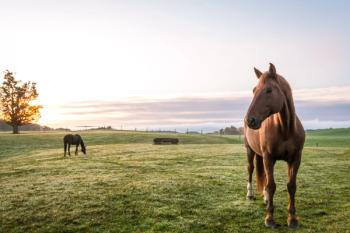
Search and rescue
DENVER — They've pulled buffalo, llama, elk, deer, squirrels, snakes and ferrets from the brink of disaster. They've helped cattle, horses, cats and dogs, too, so Code 3 Associates must stock supplies to reflect the diversity of animals that it might save during any given disaster.
DENVER — They've pulled buffalo, llama, elk, deer, squirrels, snakes and ferrets from the brink of disaster. They've helped cattle, horses, cats and dogs, too, so Code 3 Associates must stock supplies to reflect the diversity of animals that it might save during any given disaster.
Code 3 Associates hauls a 4x4, a two-horse trailer, three boats, fire-rescue equipment, a surgical suite, more than 125 small-animal cages and carriers, portable livestock corrals, beds for nine people and enough food and water for humans and animals for one week.
"We have everything on board from rat food to horse food," says Warren Craig, logistics and supply chief for Code 3 Associates, a nonprofit charitable organization that travels the country to provide disaster response and training in disaster preparedness, emergency response and cruelty investigations.
Code 3's mobile command center hauls a 4x4 vehicle, a two-horse trailer, three boats, fire and technical rescue equipment, a surgical suite, more than 125 small-animal cages and carriers, portable livestock corrals, beds for nine people and enough food and water for humans and animals for one week.
"We respond to any disaster where mutual-aid agreements become moot because everyone in the area already is busy giving aid," Craig says.
Code 3 spent about seven weeks in Florida during the relentless hurricane season of 2004. University of Florida veterinarians and technicians helped staff the mobile command center during the chaos; two veterinary professors and six technicians — some working technicians and some senior-level veterinary students — conducted procedures in the facility.
"It was good for the students because they don't typically do field work like that," Craig says.
Code 3 courts veterinarians from local disaster areas or the emergency command structure. A core group of six rescuers —with about 15 trained and experienced professionals as back-up — operate the facility and coordinate logistics with state and local disaster-response agencies and aid organizations. All resources deployed by Code 3 work under the direction of the requesting agency or the incident management team, and all resources remain on-site until they are no longer needed, according to the company. The facility can be deployed in two hours, and no fees are charged for disaster response, Craig says. The group's funding comes tax-deductible donations, and it does not solicit donations or do fundraising while at a disaster site. Code 3's operating budget is about $150,000, but it would be fully funded at about $300,000, according to the company.
DVM Newsmagazine caught up with the compassionate crusaders at the American Association of Equine Practitioners' golden-anniversary Convention in December.
Going forward
Code 3 currently is working with the Red Cross to plan for animal shelters in conjunction with human rescue facilities at disaster sites so that people know where to find their pets in an emergency.
"People don't like to evacuate because they don't want to leave their animals, so we're trying to set up facilities adjacent to Red Cross shelters so people know where their animals are," Craig says.
The Erie, Colo.-based company has a working relationship with Colorado State University and the University of Florida, Craig says, but it still has some room for growth with other universities and organizations that might help respond during a disaster.
"We'd like to get an agreement with all the universities to establish and organize so that in the event that something would happen, then we wouldn't have to waste time setting up the logistics," he says. "We can just go to work."
Newsletter
From exam room tips to practice management insights, get trusted veterinary news delivered straight to your inbox—subscribe to dvm360.




